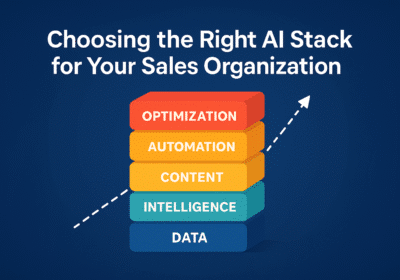Building a successful sales team requires more than just filling open seats with available candidates. Company leadership must strategically align its hiring process with business objectives, market needs, and long-term goals.
Whether you’re a solopreneur transitioning to a team-based approach or a CEO managing a growing sales force, the principles of intentional recruitment and onboarding remain the same. Hiring the right people is an investment in the future of your business.
One of the most common pitfalls in sales hiring is a lack of intentionality. Too often, small businesses hire out of convenience, choosing candidates from their immediate network or taking the first person who seems interested. While this approach may solve an immediate need, it rarely leads to long-term success.
Hiring a salesperson means selecting someone who can actively drive growth and represent your brand with competence and integrity. The stakes are even higher when you’re working with a lean team; every hire matters, and mediocrity is not an option.
To avoid these missteps, it’s essential to approach hiring with the same rigor you apply to your sales process. Think of recruiting as a parallel to securing a high-value client. Just as you wouldn’t sell your product without qualifying leads or understanding their needs, you shouldn’t hire without a structured process to evaluate candidates.
Begin by defining what success looks like for the role. What skills and attributes are non-negotiable? What specific outcomes do you expect this person to achieve within their first 90 days? A clear job description and measurable KPIs set the foundation for finding the right fit.
Cultural alignment is another critical factor. Your salespeople are the face of your business to prospects and customers. Their ability to embody your company’s values and mission can make or break the customer experience. A candidate might have a stellar track record, but if their approach clashes with your team’s culture, the partnership is unlikely to succeed. At the same time, skills and experience must align with the specific demands of the role. For instance, if your goal is aggressive market penetration, you need a hunter mentality, someone skilled in building relationships from scratch and closing deals in uncharted territory.
The hiring process should include multiple stages, each designed to evaluate a candidate’s potential comprehensively.
- Start with an initial screening to assess basic qualifications and cultural fit.
- This can be followed by a deeper dive into their skills, such as a role-playing exercise or a presentation that mimics a real sales scenario. This step is invaluable for assessing whether they can articulate value propositions, handle objections, and navigate complex buyer dynamics.
- Testing their ability to research and present solutions also reveals their level of preparation and attention to detail, traits that are non-negotiable in high-performing salespeople.
For those considering outsourcing parts of their sales process or hiring contractors, the same principles apply. Whether you’re working with a 1099 contractor, a distributor, or a channel partner, alignment on culture, values, and expectations is essential. Outsourced sales resources should be treated as extensions of your team. Their success will ultimately reflect on your brand, so don’t cut corners in vetting or onboarding them.
Onboarding is critical
Speaking of onboarding, this is an area where many businesses falter. Hiring someone is only the first step; setting them up for success is equally important. A well-structured onboarding process should cover everything from understanding your company’s mission to mastering your sales methodology.
- What do your first 30, 60, and 90 days look like for a new hire?
- Are there clear deliverables and checkpoints to ensure they are on track?
Onboarding is not just about training; it’s about integrating new hires into your culture and equipping them with the tools and knowledge they need to excel.
Compensation is another key element that must align with your expectations for the role. A common mistake is offering a compensation plan that doesn’t incentivize the behaviors you want to see. If your goal is to drive new customer acquisition, ensure your plan rewards that effort. Misaligned incentives can create friction and demotivate even the most talented salespeople. Transparency is crucial. Candidates should understand precisely how they can achieve their targets and what they stand to gain.
Can you predict the future?
Predictive analysis and pre-hire assessments can also play a valuable role in refining your hiring process. Tools that evaluate a candidate’s skills, personality traits, and cognitive abilities can provide insights that go beyond what a resume or interview can reveal. For example, if you’re hiring for a role that requires multi-threaded selling or account-based management, you’ll want to identify candidates who excel in strategic thinking and collaboration. These assessments can serve as a backstop to ensure you’re making data-driven hiring decisions rather than relying solely on gut instinct.
It’s also worth noting that not every high-performing salesperson will thrive in every environment. Someone who excels at farming existing accounts may struggle in a role that demands aggressive prospecting. Similarly, a top performer in one industry may not translate seamlessly into another. Understanding the nuances of your market and aligning them with your ideal candidate profile is critical. This is where a thoughtful hiring strategy, not just a hiring process, comes into play.
Hiring is selling and buying
When you think about it, hiring is the ultimate sales pitch. You’re selling your company to potential employees just as much as they’re selling themselves to you.
- Is your culture attractive to high-potential talent?
- Do you have a compelling story that makes people want to join your team?
These are questions worth asking as you build your recruitment strategy. High-potential talent is drawn to organizations that offer not just a job, but an opportunity to grow and make an impact.
For small businesses, the stakes are particularly high. With limited resources, every hire must contribute to the bottom line. This means you can’t afford to skip steps or settle for less-than-ideal candidates. However, it also means you have the opportunity to build a team that is uniquely aligned with your vision and goals. By investing time and effort into your hiring and onboarding processes, you set the stage for sustainable growth and long-term success.
If you’re feeling overwhelmed or unsure where to start, it’s okay to ask for help. There are plenty of resources and experts available to guide you through the process. Whether it’s designing a structured hiring process, creating an onboarding plan, or simply refining your recruitment strategy, there’s no shame in seeking support. The cost of a bad hire far outweighs the investment in getting it right the first time.
You can receive more ideas and feedback from the B2B Sales Lab. The B2B Sales Lab is a resource where you can ask your peers questions and receive assistance. In the lab, you can ask questions that are bothering you or that you think you need help with, and others who have been through the same situation will be happy to assist you.
Hiring is a perfect conversation topic in the B2B Sales Lab since it is populated by people who have hired and been hired many times. The group is comprised of experts on what works and what doesn’t work.
You can join the lab by visiting www.b2b-sales–lab.com and receive a complimentary 90-day trial of the community.
Ultimately, building a high-performing sales team is about more than just hiring great people. It’s about creating an environment where they can thrive, aligning their efforts with your strategic goals, and equipping them with the necessary tools and support to succeed. By taking a deliberate and thoughtful approach to recruitment, you position your business for growth and resilience in an ever-changing marketplace. And isn’t that what every business leader wants?
Here are some actionable steps you can implement today to enhance your sales hiring strategy:
- Define Your Ideal Candidate Profile with Precision: Start by crafting a comprehensive job description that goes beyond basic qualifications. Identify the skills, attributes, and outcomes that are non-negotiable for success in the role. Consider using pre-hire assessments to refine your candidate criteria, ensuring that you target individuals who align with your business goals and culture.
- Enhance Your Interview Process with Real-World Scenarios: Integrate practical exercises, such as role-playing or sales presentations, into your interview process to enhance its effectiveness. This will help you evaluate candidates’ ability to articulate value propositions and effectively handle objections. Real-world scenarios are invaluable for assessing their readiness and adaptability to your specific sales environment.
- Design a Comprehensive Onboarding Plan: Develop a structured onboarding process that includes clear milestones for the first 30, 60, and 90 days. Ensure that new hires are thoroughly familiarized with your company’s mission, sales methodology, and cultural values. Provide them with the necessary tools and support to hit the ground running and contribute effectively from day one.
- Align Compensation with Strategic Objectives: Re-evaluate your compensation plan to ensure it incentivizes the behaviors that align with your strategic goals. Transparency is key; make sure candidates understand how they can achieve their targets and the rewards associated with their performance. This alignment will drive motivation and support the overall growth objectives of your sales team.
Implementing these steps will not only streamline your hiring process but also ensure that you build a sales team poised for long-term success and alignment with your business vision.




